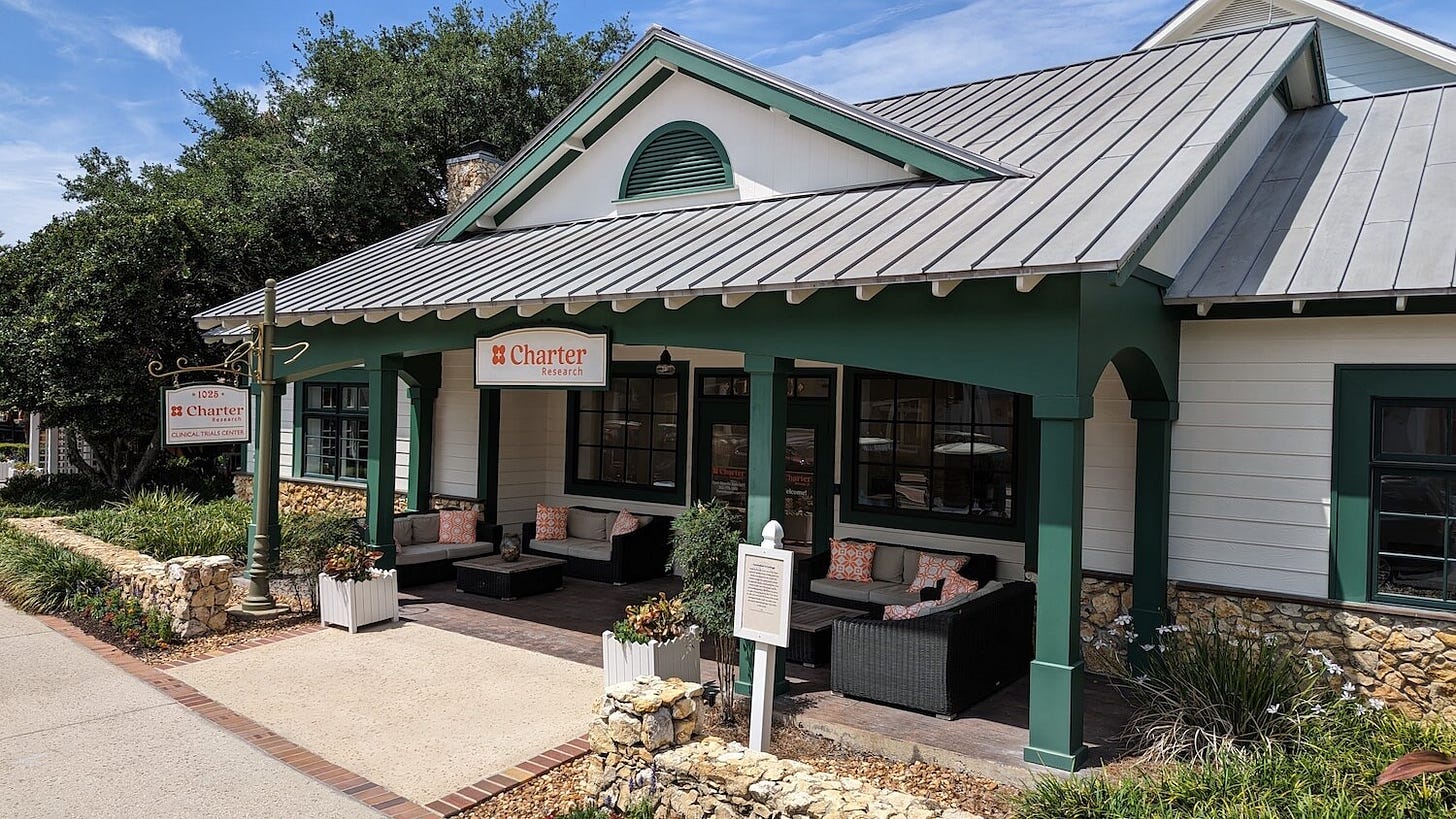Alzheimer's clinical trials give participants hope, chance to leave legacy
Charter Research CEO Jeff Pohlig facilitates joy and hope for Central Floridians who otherwise stand to lose everything.
His company performs clinical trials across a swathe of therapeutic areas, but is best known for supporting people living with Alzheimer’s disease — which is America’s seventh leading cause of death.
“Eventually your brain forgets to swallow or breathe,” Pohlig says. “Life ends because your brain just isn’t functioning anymore. It’s a very long slow goodbye for the whole family.”
But if Pohlig has it his way, that will change, and soon. His team helped prove that Leqembi, or lecanemab, moderately slows cognitive decline, and that drug now has FDA approval.
This means Pohlig witnessed an Orlando woman’s tears when she was told that not only was she now free of the amyloid plaques that characterize the disease, but also that her cognitive scores had stayed level.
While this doesn’t indicate she’s been cured, she does have more time, and that’s a good thing.
“Our hope is that people around the world can live with dementia as well as possible for as long as possible,” Pohlig says.
This passion was born when Pohlig saw Alzheimer’s up close. His grandfather died of the disease when Pohlig was a college student.
“It impacts everyone so dramatically,” he says.
That’s one reason why Pohlig encourages everyone over 55 to visit Charter Research, which is opening a brand-new location in Orlando next month.
Potential clinical-trial candidates include those living with mild cognitive impairment, severe Alzheimer’s, or even just a family history of dementia.
Older adults who have memory-related symptoms but no diagnosis may also be perfect participants, Pohlig says. Not only would they get a free medical work-up that would typically cost more than $12,000, but they would also be compensated for their time.
Regardless of whether you choose to pursue a clinical trial, you’ll gain an intimate understanding of your health, and that’s critical.
“There are lifestyle changes and medical treatments that may be available to you,” Pohlig says. “But in order to avail yourself of those options, you have to first know what you’re dealing with in order to take the best steps to live as long as you can as well as you can.”
And a cure?
That is nuanced and likely involves a cocktail of therapies, Pohlig says, but it comes faster if more of the 6.5 million Americans living with Alzheimer’s join research studies. Right now, less than one percent of this population has utilized these free community services.
If everyone experiencing memory impairment sought support, the collective legacy would be a brighter future for their grandchildren.
Participants gain a hope that applies not only to their lives personally, but also to worldwide well-being.
If you or a loved one would like to learn more, please visit www.charterresearch.com.





